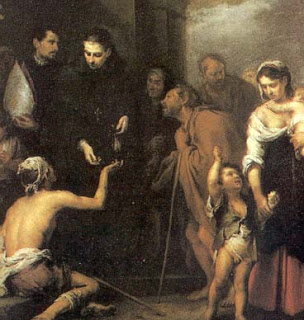 St. Thomas of Villanova (1488-1555)
St. Thomas of Villanova (1488-1555)
Image Courtesy: Catholic Fire
(Franciscan Media) Thomas was born at Spain Fuentellana in the Kingdom of Castile and was reared on the practices of Christianity and charity according to EWTN — Every Friday, Thomas’ father (Alazo Tomas Garcia) would give to charity all that he had earned at the mill besides his daily ration of bread however on ‘Great Feast Day’s’ he would add wood, wine and money while to poor farmers, he’d loan them money and seed.
Upon Alazo’s death, Thomas’s mother (Lucia) continued the practice that her late husband had started, together with supplying indigent Maidens in the neighborhood with clothing and money.
When 16 year old Thomas entered the Univ of Alcala, after completing his studies and earning a Masters of Arts and Theology degrees, he became a popular teacher there.
In 1516 Thomas joined the Augustinian Friars, taking his vows a year later and was Ordained a Priest the following year–his first Mass Celebrated as a Priest was on Christmas Day 1518
Fr. Thomas would resume his teaching of Theology at Salamanca Convent, preaching at Churches in Spain was soon added to his duties. Fr. Thomas was later nominated by the Emperor to be Archbishop of Granada but refused. When the See became vacant again he was pressured to accept.
The money the Cathedral Chapter offered to Bishop Thomas to furnish his house was instead donated to a hospital with his explanation:
“Our Lord will be better served by your money being spent on the poor in the hospital. What does a poor Friar like myself want with furniture?”
Bishop Thomas wore the same Habit he had received in the Novitate, mending it himself, his Servants and Domestic help were ashamed of him but couldn’t convince him to change. — Each day, several hundred poor people would come to Archbishop Thomas’s door, receiving a free meal, wine and money. — When Archbishop Thomas was criticized that people were taking advantage of him he replied:
“If there are people that refuse to work, that is for the Governor and the Police to deal with. My duty is to assist and relieve those who come to my door.”
Bishop Thomas would take-in Orphans and paid his Servants for every deserted child they brought to him. — Bishop Thomas encouraged the wealthy to mirror his example, in order to be richer in mercy in charity, than they were in earthly possessions.
Criticized for not being more strict with transgressors, Bishop Thomas said:
“Let him (the Complainer) inquire whether Saint Augustine or Saint John Chrysostom used anathemas (censure) or excommunication to stop the drunkenness and blasphemy which was so common among the people under their care?”
During Bishop Thomas’ final days, he commanded that all of the money he possessed be distributed to the poor, his material goods were to be given to the rector of his Alma mater. — As Mass was being celebrated in Bishop Thomas’s honor, he breathed his last, reciting the words of Jesus:
“Into your hands, O Lord, I commend my spirit.” —Psalm 31:5
Bishop Thomas in his lifetime was called the ‘Almsgiver’ and the ‘Father of the Poor’ — He was Beatified in 1618 by Pope Paul V and Canonized in 1658 by Pope Alexander VII
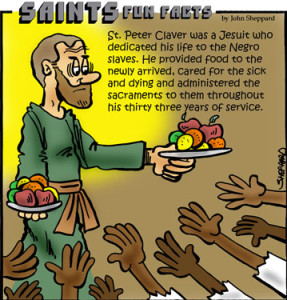
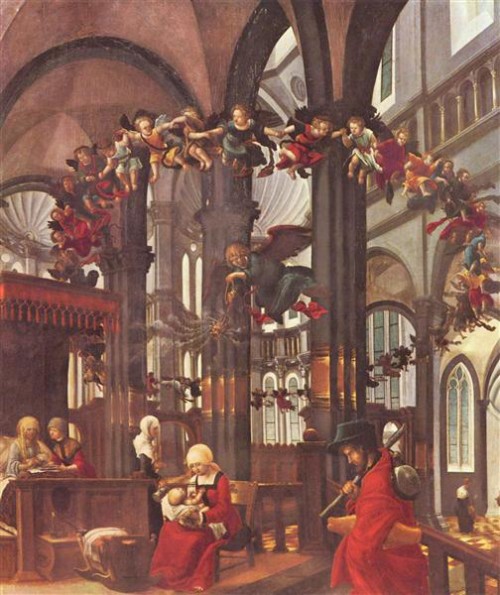 Nativity of the Blessed Virgin Mary
Nativity of the Blessed Virgin Mary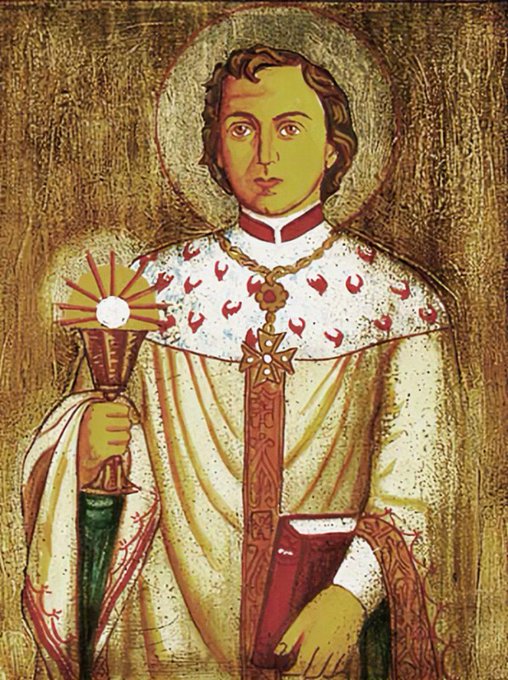
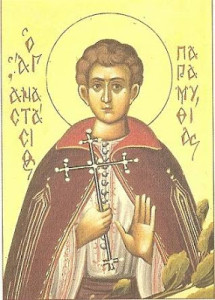
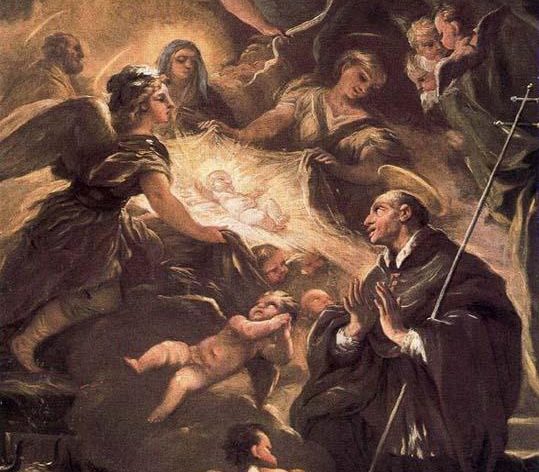
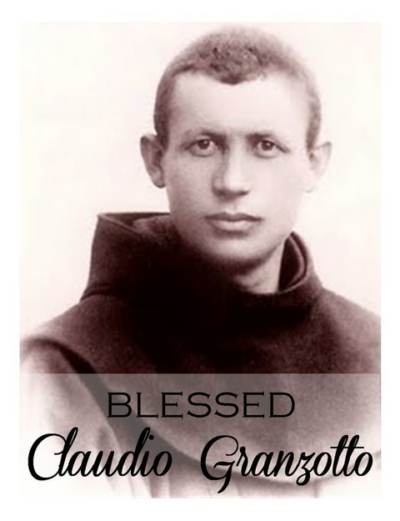 Blessed Claudio Granzotto (1900-1947)
Blessed Claudio Granzotto (1900-1947)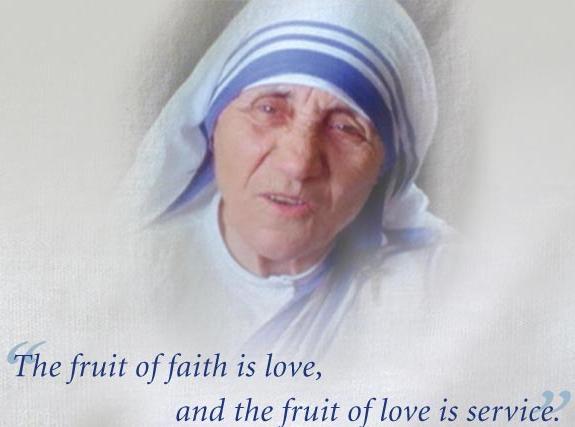 Mother Teresa (1910-1997)
Mother Teresa (1910-1997)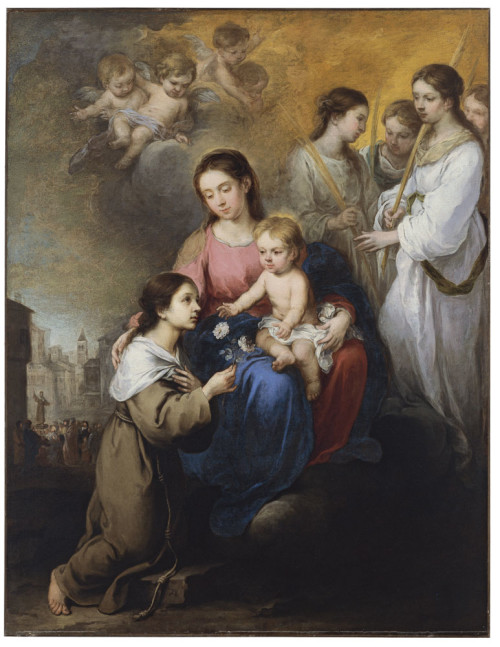 Painting: ‘The Virgin and Child with Saint Rose of Viterbo’
Painting: ‘The Virgin and Child with Saint Rose of Viterbo’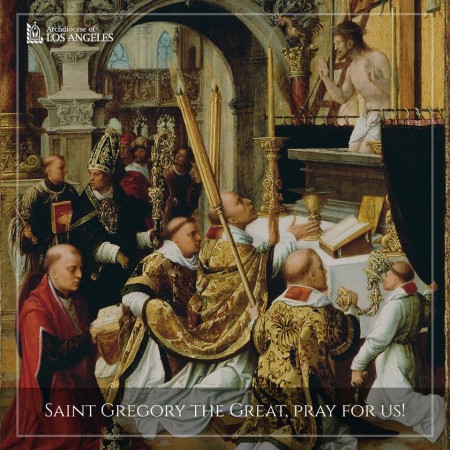 Pope Saint Gregory the Great (540-604)
Pope Saint Gregory the Great (540-604)